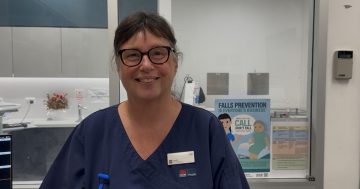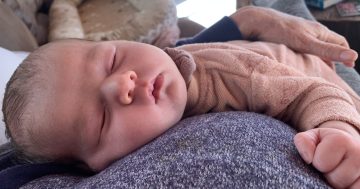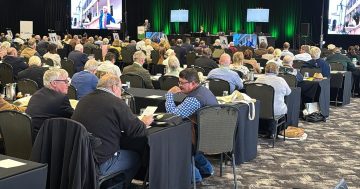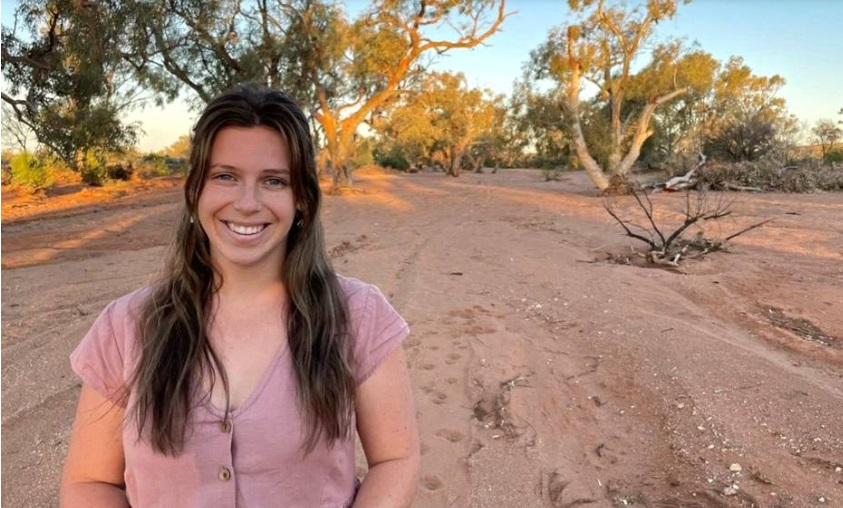
Meg Austin’s work as a midwife around the state, particularly out at Broken Hill – where this photo was taken – saw her not only nominated for the 2022 RAS Rural Achiever Award, but now she has been appointed to the NSW Regional Health Ministerial Advisory Panel. Photo: Country Education Fund.
As an early career midwife, Young’s Meg Austin never imagined she’d eventually help shape the future of health outcomes for people living and working in regional NSW.
But what began as work experience in a maternity ward in Corowa back in 2017 has led the Canowindra-born and bred midwife to higher echelons of health having just been appointed to the NSW Regional Health Ministerial Advisory Panel.
Meg said she was as surprised as anyone when her panel application succeeded because she really hadn’t held out much hope for success.
But she says she’s excited – and maybe a little overwhelmed – to be in a position to help shape the future of health outcomes for people living and working in regional NSW.
“The panel is made up of such an amazingly qualified group of people with diverse and well-established careers, so as a bit of a new starter it is an amazing opportunity to give a different perspective,” Meg said.
She wants people in regional and remote communities to feel empowered to be a part of the decision-making process and feel in control when it comes to making choices about their healthcare.
And she believes that can only happen with better conversations.
“I have particular interests in antenatal care and midwifery-led continuity of care for women who live in regional and remote areas,” she explained.
A position in Far West LHD (Broken Hill) as a continuity midwife reaffirmed the value of such a model of care – better patient outcomes, lower rates of smoking, less incidence of pre-term birth, stillbirth and women more satisfied with their pregnancy experience.
She says continuity of care midwifery really is the gold standard of care. Meg would like to see this model more widely implemented across rural NSW.
Meg’s journey to become a midwife began in 2017, when she completed work experience in the maternity ward at Corowa Hospital as part of her HSC.
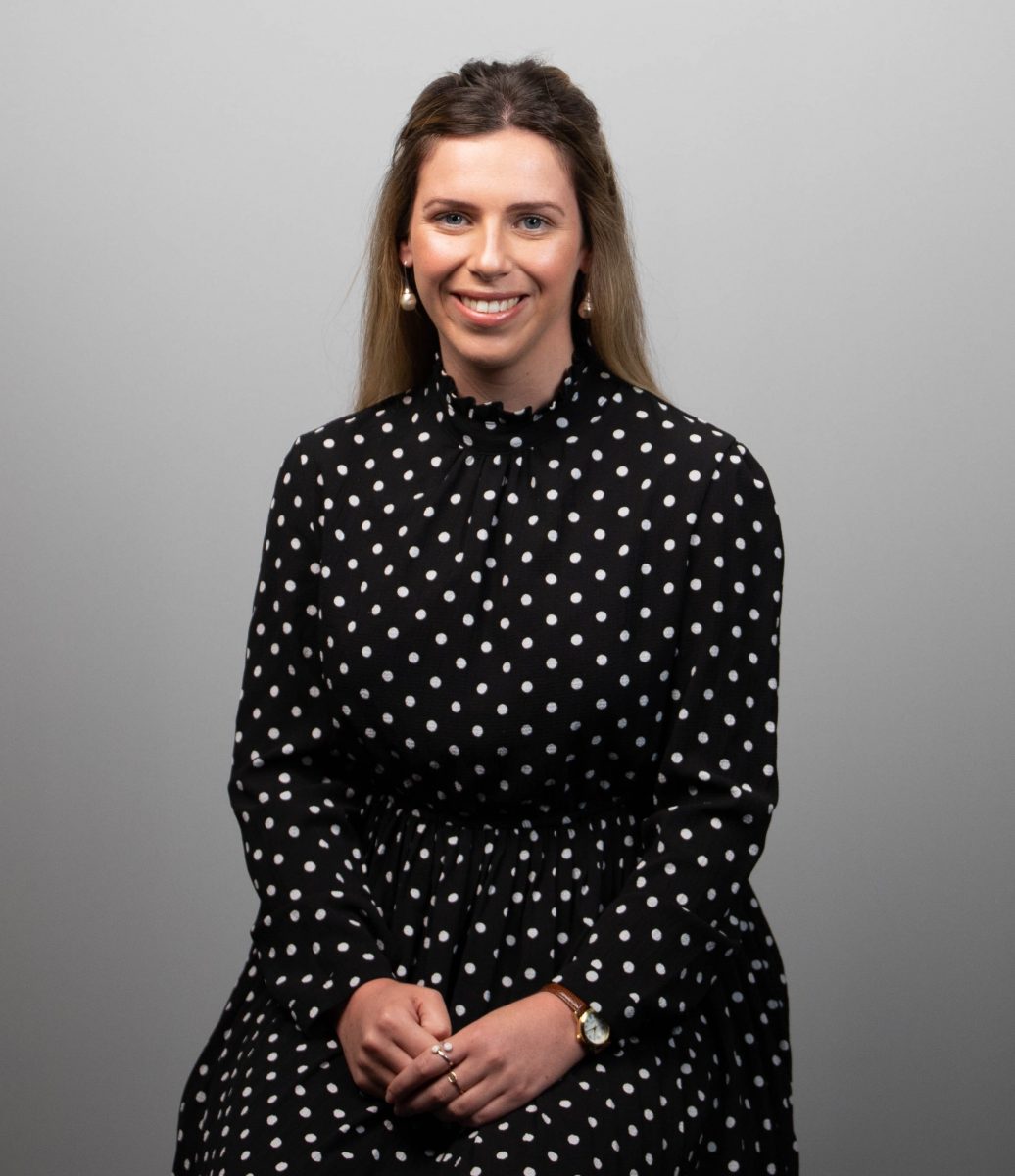
Meg has recently moved to Young to be closer to her family. Photo: MLHD.
She completed her Bachelor in Midwifery at Southern Cross University and Canberra University and embarked on her first graduate year at Broken Hill Hospital, where a large cohort of her patients were Aboriginal families and from marginalised communities, where English is not their first language.
“I provided care for particularly vulnerable women through the continuation of pregnancy, both in the hospital and community. I helped them manage their pregnancy needs right up to and after the birth of their babies. That was really special because you got to build these really great relationships with women and their families,” Meg said.
“It was interesting work because Broken Hill is so close to the border and we worked a lot with SA Health, and there was just not a clean transition from one healthcare system to the next. It really made me question healthcare Australia-wide and the disparities between our state policies that sometimes impact healthcare outcomes,” Meg said.
“It’s why I am so passionate about making sure people feel empowered in their everyday conversations and choices, whether it be with your work colleagues, your patients, your community, you get to feel you actually have a really positive impact on people’s lives.”
Meg has spent most of the past five years studying and working in border towns and regional areas including Coffs Harbour, Kempsey, Dubbo, Bathurst, Cowra, Parkes, Forbes, Canberra and now Young, often caring for people from low socioeconomic backgrounds.
Her recent move to work with Murrumbidgee Local Health District at Young Hospital was inspired by a yearning to be closer to her family and friends in Canowindra.
“I have only lived and worked in Young for a very short period of time and already I’m starting to see new mums in the supermarket, out and about, and that is really special,” Meg said.
“I just love the country; I grew up in a country town, and that sense of belonging, of community you do not get anywhere else,” she explained. “I have no interest in moving to a metropolitan city and will always work in regional areas.”
Plus, she says, it’s nice to be able to duck home for special events on the weekends.
Meg feels that when you live and work in a regional town, you’re embedded, with open arms, in the community, giving opportunity to build meaningful and strong relationships.
Meg’s participation in the NSW Regional Health Ministerial Advisory Panel has given her insight into how policy and clinical care relate, and confidence to speak up about the things she feels are barriers and opportunity to improve.
“My role is about representing the newer graduates and staff, so early career nurses, midwives and allied health professionals have some input about some of the things that we have experienced, what we see as barriers to our work,” Meg said.
She hopes to represent midwives working in rural NSW and to be the voice to outline the challenges and successes they experience as staff members.
“I feel privileged to be involved, and it has been an eye-opening experience,” she said. “I have an appreciation for planning and policy creation and understand why change takes time.”
Earlier this year Meg was recognised as a finalist in the 2022 RM Williams RAS Rural Achiever Award – a statewide leadership program run by the Royal Agricultural Society (RAS) of NSW to recognise future young leaders working hard to make a significant contribution to their community and to rural Australia.







